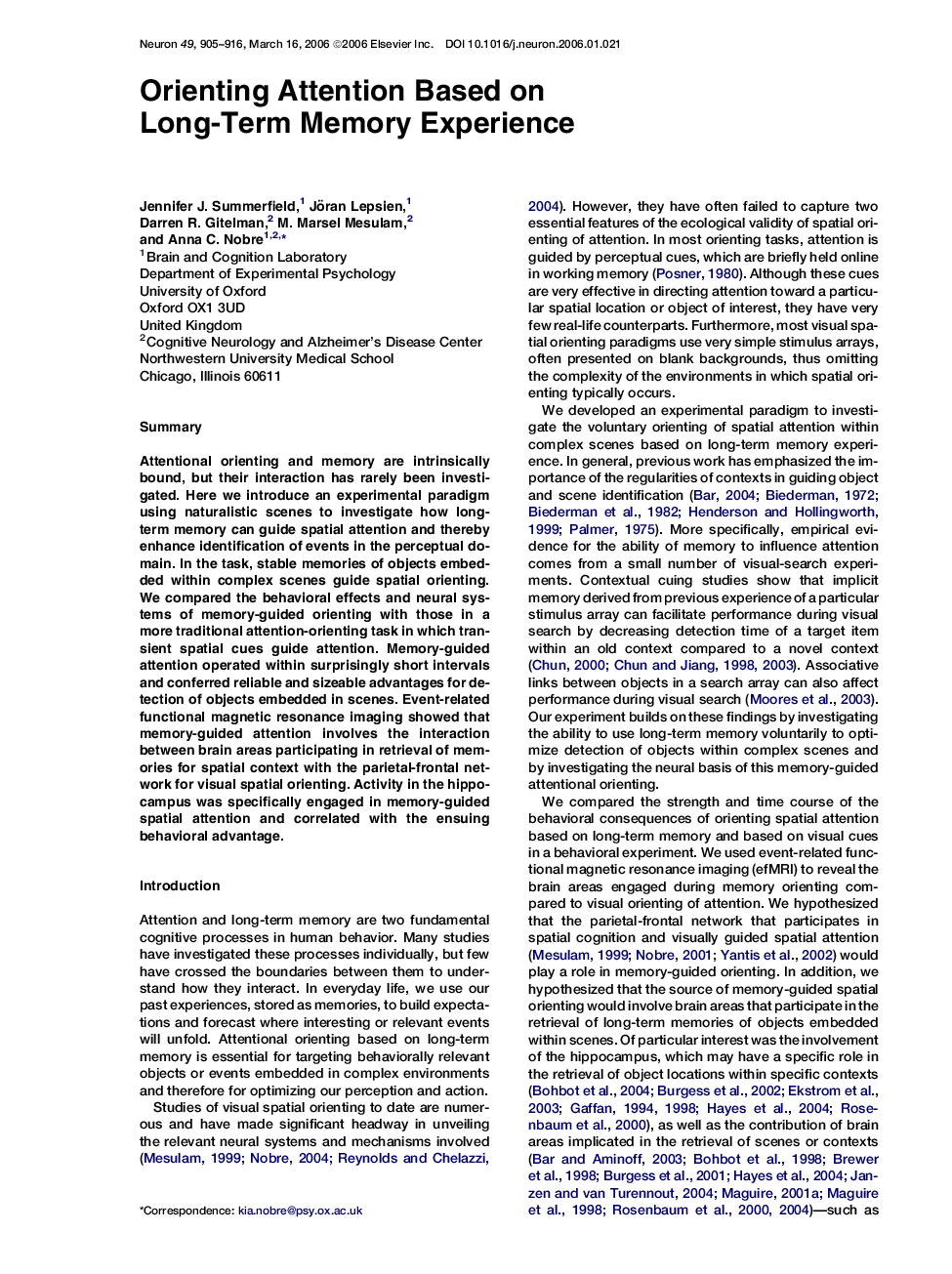| Article ID | Journal | Published Year | Pages | File Type |
|---|---|---|---|---|
| 4323336 | Neuron | 2006 | 12 Pages |
SummaryAttentional orienting and memory are intrinsically bound, but their interaction has rarely been investigated. Here we introduce an experimental paradigm using naturalistic scenes to investigate how long-term memory can guide spatial attention and thereby enhance identification of events in the perceptual domain. In the task, stable memories of objects embedded within complex scenes guide spatial orienting. We compared the behavioral effects and neural systems of memory-guided orienting with those in a more traditional attention-orienting task in which transient spatial cues guide attention. Memory-guided attention operated within surprisingly short intervals and conferred reliable and sizeable advantages for detection of objects embedded in scenes. Event-related functional magnetic resonance imaging showed that memory-guided attention involves the interaction between brain areas participating in retrieval of memories for spatial context with the parietal-frontal network for visual spatial orienting. Activity in the hippocampus was specifically engaged in memory-guided spatial attention and correlated with the ensuing behavioral advantage.
